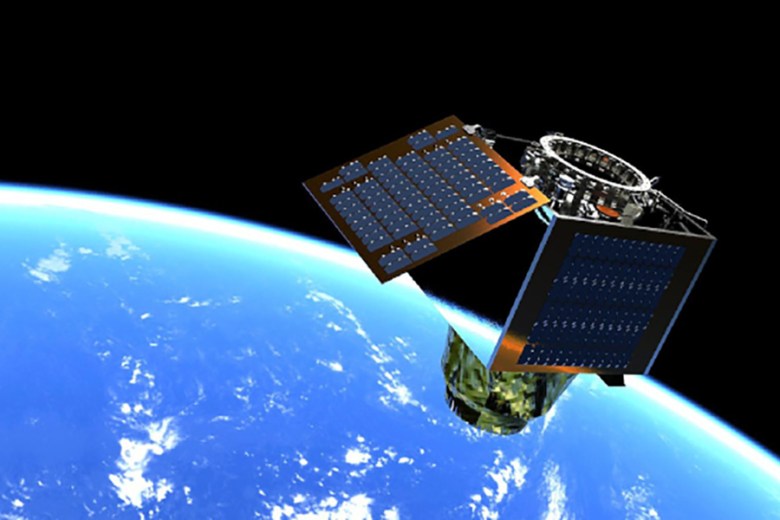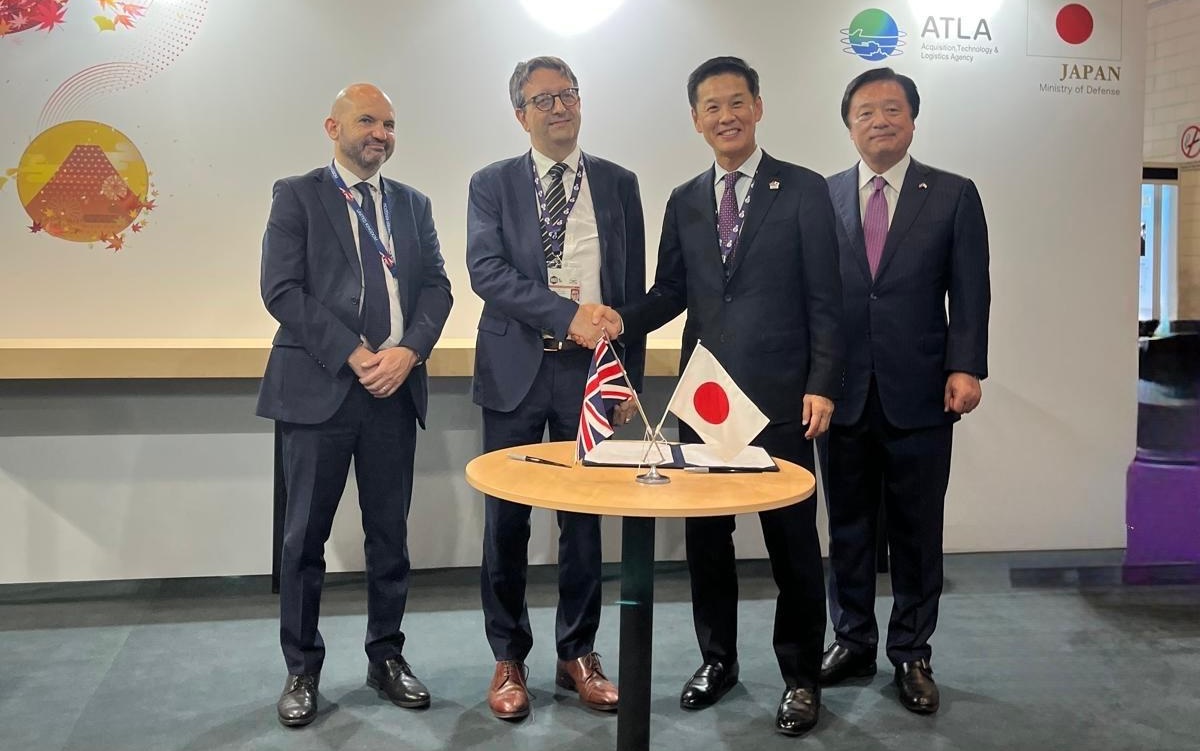TAMPA, Fla. — Japan’s IHI is broadening its push to build a sovereign Earth observation constellation, partnering with U.K.-based SatVu to explore adding thermal imaging satellites alongside radar and other sensors already in the works.
“The IHI constellation is designed to allow it to grow over time,” said Yoshifumi Asakura, general manager of space systems business development for the Japanese aerospace manufacturer’s aero engine, space and defense unit.
“However, this initial plan is to have a constellation of 100 satellites, with a range of different sensors,” including optical, Synthetic Aperture Radar (SAR), radio frequency, infrared, hyperspectral imaging and VDES, a ship-to-shore communications system that uses very high frequencies.
IHI is also partnering with Surrey Satellite Technology Limited (SSTL), which is building two more spacecraft for SatVu after its first ceased operating six months post-launch, to potentially use the British manufacturer’s platform for its constellation.
In May, IHI joined forces with Finnish SAR operator Iceye to jointly develop up to 24 satellites, which, like the planned SatVu-backed thermal imaging spacecraft, could be built in Japan.
IHI and SatVu did not disclose the number of thermal satellites under consideration as part of the Memorandum of Understanding they signed Sept. 10.
“IHI plans to start launching the satellites that will form part of this constellation in 2026,” Asakura told SpaceNews.
“A more complete version of the constellation will be in orbit by 2030.”
 A rendering of HotSat-1, SatVu’s pathfinder thermal imaging satellite launched in 2023. Credit: SatVu Credit: SatVu
A rendering of HotSat-1, SatVu’s pathfinder thermal imaging satellite launched in 2023. Credit: SatVu Credit: SatVu
SatVu’s pathfinder spacecraft HotSat-1 launched in 2023, demonstrating 3.5-meter thermal imaging resolution that could track locomotives and map heat across cities before failing in orbit. The company plans to follow with HotSat-2 and HotSat-3 in 2026 for national security, economic and environmental uses.
Under their agreement, IHI and SatVu will evaluate how this data can be applied in Japan, define requirements for a sovereign high-resolution thermal constellation and explore business structures for building and operating the satellites domestically.
The partnership supports the U.K.–Japan Hiroshima Accord signed in 2023, which called for closer cooperation on defense and emerging technologies, including space-based Earth observation.
Asakura said Japan is stepping up efforts to secure its own space capabilities amid rising geopolitical tensions, with thermal infrared data seen as a critical new layer for national and economic security.
“IHI continues to work with a range of partners, in the U.K. and elsewhere, to build out its plan for this Earth-observation constellation,” Asakura added, “which we believe will make an important contribution to the national security of Japan and its allies, such as the U.K. and Australia.”
Related
